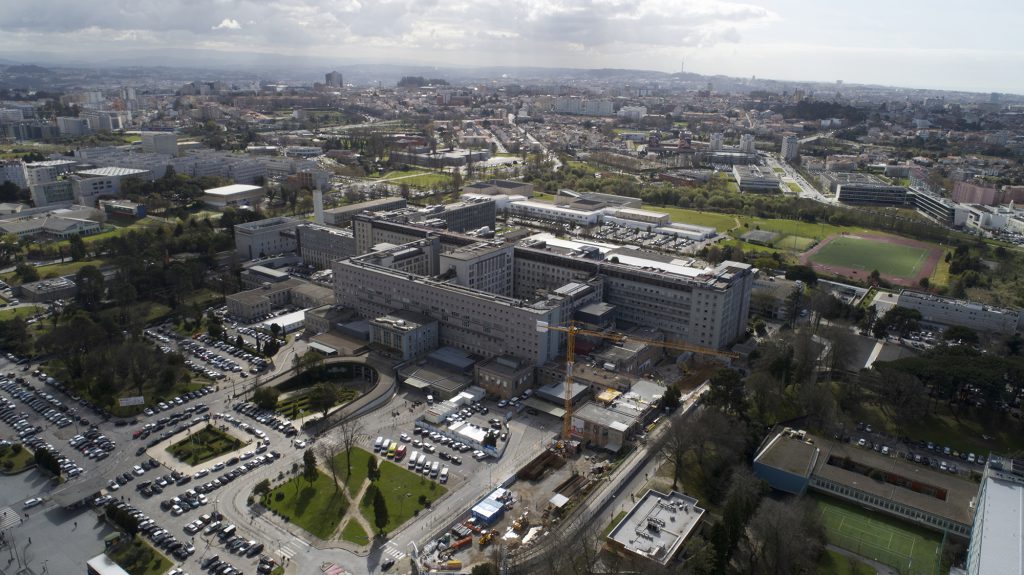Centro Hospitalar de São João

Centro Hospitalar Universitário de São João (CHUSJ), with 1100 beds and a very wide range of medical specialties, is a referral hospital for around 3.5 million people, accounting for 20% of public hospital care activity in northern Portugal. There are over 6000 employees, of which nearly 1500 physicians and 2300 nurses. In one year, CHUSJ admits 40.000 hospitalizations (medical and surgical), performs over 40.000 surgeries (conventional and ambulatory), 750.000 outpatient consultations, 127.000 treatment sessions in day hospitals and 250.000 emergency episodes. The quality of services provided has led to CHUSJ being endorsed by national authorities as a reference center in 15 areas, related with rare and complex conditions/procedures, and accepted in 7 European Reference Networks.
CHUSJ’s professionals participate in clinical, epidemiological and laboratorial research studies, and pre and post-graduate training. There are over 100 industry-sponsored clinical trials ongoing, around 400 investigator-driven studies approved every year and over 400 articles published annually in indexed journals, with over 30% of all publications with impact factor scoring above 5 in 2018 and 2019.
CHUSJ has developed and implemented an information systems tool that allows the collection, analysis and integration of information produced and registered electronically, which facilitates access to data to inform decisions at management and clinical levels, and is a valuable asset for research.
CHUSJ and the Faculty of Medicine, University of Porto together constitute a clinical academic center which aims for the introduction of innovative programs and strategic partnerships that enable qualitative advances in research and training.
The CHUSJ has been at the forefront of the heart care for decades, both in adults and children. It encompasses in a single institution all the areas of knowledge necessary for the treatment of cardiac diseases. Is end-of-line for the treatment of most complex and critical cases, in pediatrics and adults, specifically in rare genetic cardiovascular diseases, offering the highest standard of care to patients through a multidisciplinary approach. From the 15 reference centers, four of them in the cardiovascular area (congenital heart diseases, heart transplantation, structural heart intervention and ECMO centers) and one on inherited diseases of metabolism (https://www.sns.gov.pt/institucional/centros-de-referencia).In addition, it has a center of hereditary diseases of metabolism that is already part of the MetabERN network, with extensive experience in the approach of cardiomyopathies. The multidisciplinary team covers the whole spectrum of rare cardiac diseases and offers up-to-date care from diagnosis, over primary and secondary follow-up, treatment, individual and familial screening and counseling.

Maria João Baptista
